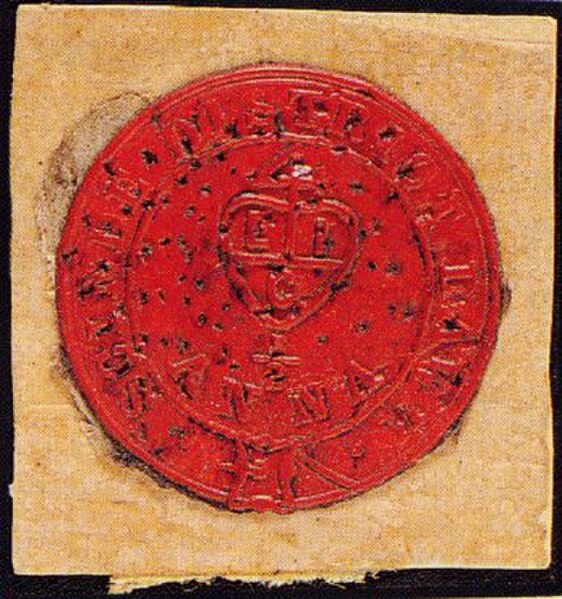India Post is an Indian government-operated postal system in India, and is the trade name of the Department of Post under the Ministry of Communications. Generally known as the Post Office, it is the most widely distributed postal system in the world. Warren Hastings had taken initiative under East India Company to start the Postal Service in the country in 1766. It was initially established under the name "Company Mail". It was later modified into a service under the Crown in 1854 by Lord Dalhousie. Dalhousie introduced uniform postage rates and helped to pass the India Post Office Act 1854 which significantly improved upon 1837 Post Office act which had introduced regular post offices in India. It created the position Director General of Post for the whole country.
Indian postal service Educational card, late 19th or early 20th century
1850s Scinde Dawk stamp
A modern Indian post office near Udagamandalam
British-era letter box in Shimla, India.
Sir Henry Bartle Edward Frere, 1st Baronet, was a British colonial administrator. He had a successful career in India, rising to become Governor of Bombay (1862–1867). However, as High Commissioner for Southern Africa (1877–1880), he implemented a set of policies which attempted to impose a British confederation on the region and which led to the overthrow of the Cape Colony's first elected government in 1878 and to a string of regional wars, culminating in the invasion of Zululand (1879) and the First Boer War (1880–1881). The British Prime Minister, Gladstone, recalled Frere to London to face charges of misconduct; Whitehall officially censured Frere for acting recklessly.
Henry Bartle Frere
Henry Bartle Frere, by 'Spy' in Vanity Fair, 1873
Southern Africa in 1878, on the eve of the confederation wars, Cape Colony Transvaal Orange Free State
Pro-imperialist cartoon showing Sir Bartle Frere vanquishing the "negrophilist" liberals of the Cape government, represented by MP Saul Solomon.








